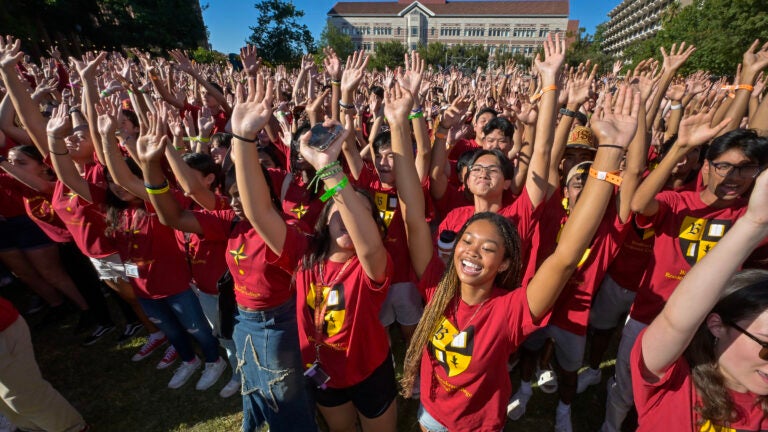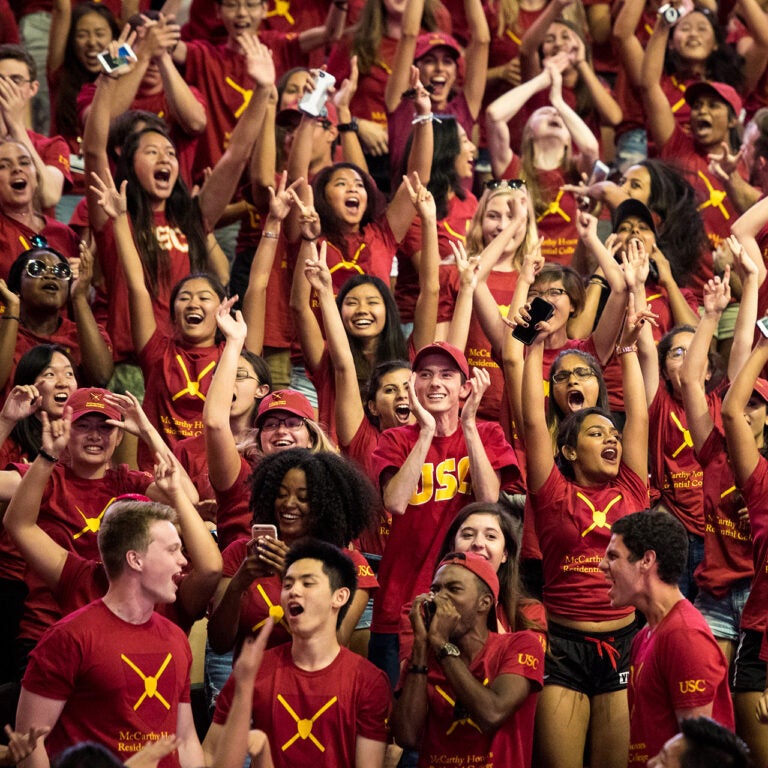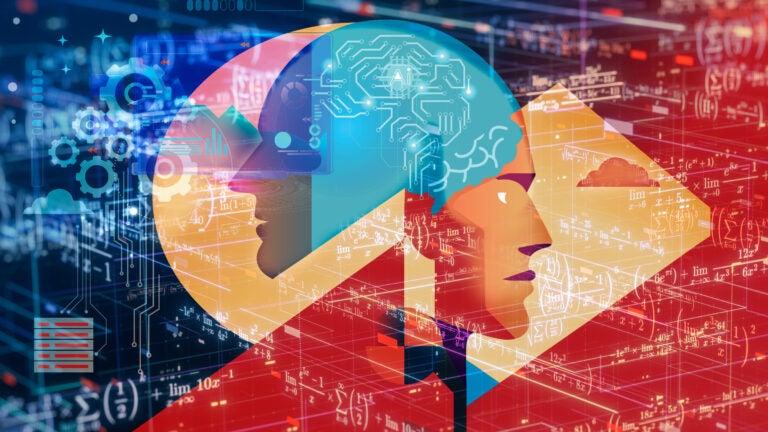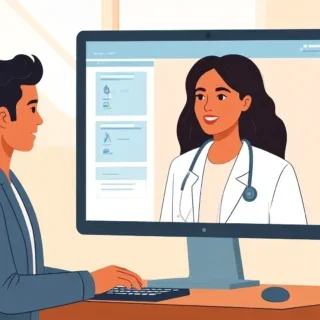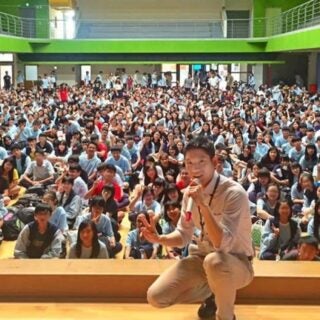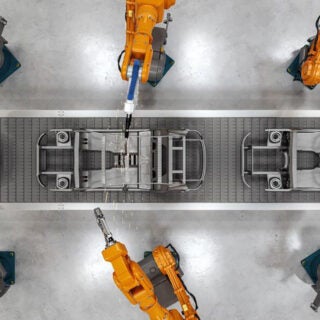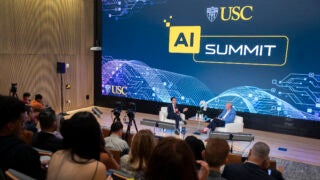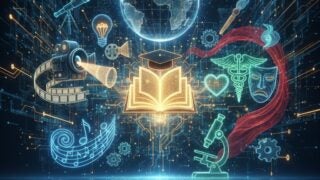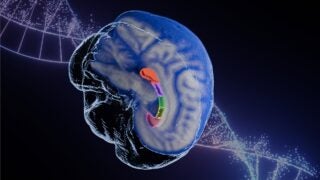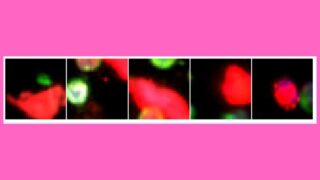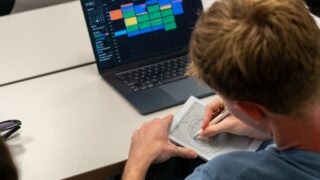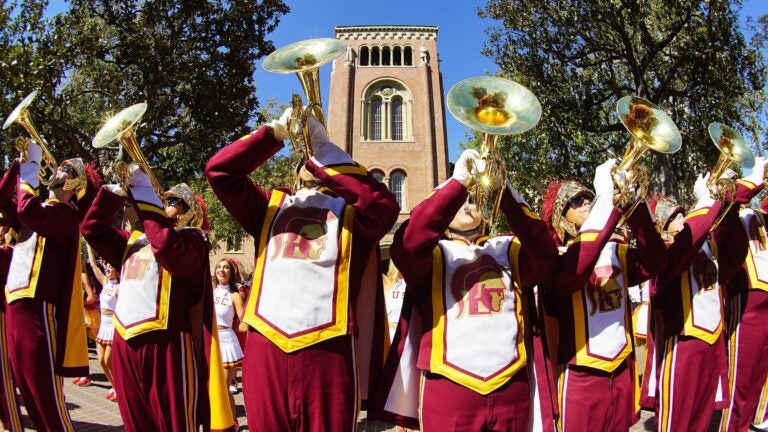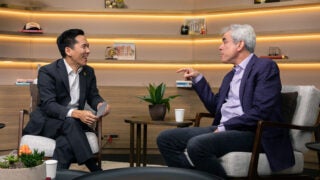Leading the Way in AI
In institutes, labs and classrooms across the university, USC is setting the pace in artificial intelligence — its development, implementation and potential. Take a look back at five decades of innovations that established USC as a leader in the field — and look ahead at what’s next.
(Illustration/iStock)
Teaching, Learning and Working in the Age of Artificial Intelligence
As AI reshapes how we live and work, USC researchers are studying its real-world impacts and helping teachers, clinicians and professionals use new technologies with purpose, ethics and care.
Designing Safe and Ethical AI Chatbots for Health Care
TESOL in the Age of AI: Rethinking English Teaching for a Digital World
A Real-Time Look at How AI Is Reshaping Work

The Driver of Tomorrow’s Tech is Here Today
Not so long ago, artificial intelligence was the stuff of science fiction. Today it’s affecting our lives in countless ways — and USC is leading the revolution.
AI Leadership — from Research and Implementation to Ethics
USC’s unique interdisciplinary approach to artificial intelligence brings together expertise from myriad areas, with students at the center of it all.
Wide range of application for artificial intelligence is focus of inaugural USC AI Summit
The event featured business leaders along with faculty, staff and student presentations and a conversation with former Google CEO Eric Schmidt.
AI and higher ed: USC’s ‘big tent’ approach to artificial intelligence
USC Marshall Dean Geoffrey Garrett talks about the university president’s AI Strategy Committee and leading university-wide efforts to integrate AI ethically and responsibly across all disciplines.
Knight Foundation, USC Marshall commit $4 million to advance purpose-driven AI research
The research initiative aims to create ethical, human-forward outcomes for cutting edge technology like AI.
USC researchers use AI to uncover genetic blueprint of brain’s largest communication bridge
The research team created a new AI-powered tool that identifies and quantifies the part of the brain that connects the hemispheres.
How USC is training the minds behind the latest AI algorithms
A new USC Dornsife master’s program teaches the mathematical foundations that drive AI, empowering students to build the algorithms shaping our future.
USC Price professor launches initiative to teach AI
Glenn Melnick wants to make sure that USC prepares its students to not only hold some of those jobs but to lead the AI revolution.
What if AI could learn like a human apprentice?
For a federal defense project, USC researchers built an AI system that observes experts at work and shares their know-how with others when needed.
Robotaxis keep riders safe, but what about their data?
Although well-established frameworks help engineers identify privacy risks, there is little practical guidance for choosing the actual tools that are supposed to safeguard data, research from USC experts and colleagues finds.
AI is changing how students learn — or avoid learning
A USC study reveals most students use tools like ChatGPT to shortcut assignments, unless professors actively guide them toward deeper, more thoughtful usage.
Business students provide AI insights for top tech execs
USC Marshall undergrads are developing research findings on the latest artificial intelligence trends for top executives at Salesforce and Thunder.
AI farming expert has one foot in the field and the other in the cloud
Kirk Stueve is combining his farming roots with his USC education to help shape a more sustainable future through smart farming technology.
Inventing the Future of AI at USC
USC’s cross-disciplinary research in AI bridges ethics, engineering and medicine — reimagining how technology can serve humanity. USC’s cross-disciplinary research in AI bridges ethics, engineering and medicine — reimagining how technology can serve society.
Top Headlines
The daughter of the song’s composer will conduct the USC Trojan Marching Band and over 500 of its alumni during halftime on Saturday.
PODCAST: In the second installment of his podcast, USC’s interim president sits down with the author of The Anxious Generation to discuss the effect of social media on young people’s development.
Keck Hospital of USC and USC Verdugo Hills Hospital each received the top ranking from The Leapfrog Group, an independent national nonprofit focused on patient safety.
With state-of-the-art putting greens and driving ranges, high-tech simulators give Trojans a complete overview of their game.
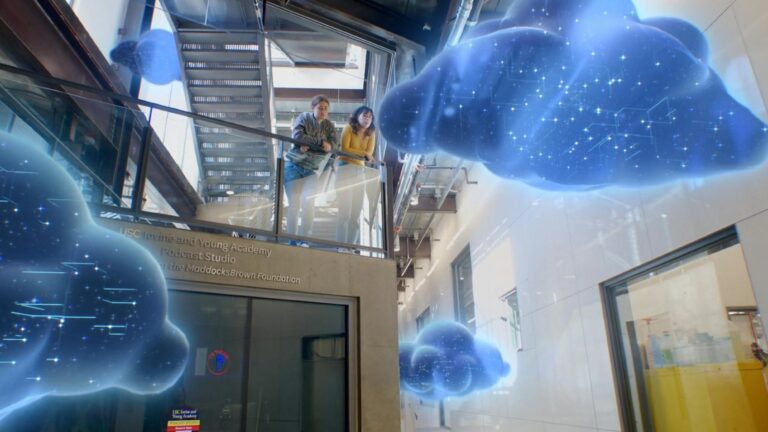
Spotlight: USC Iovine and Young Academy
The USC Jimmy Iovine and Andre Young Academy offers a cutting-edge curriculum that fuses creativity, technology and innovation, preparing students to transform industries, create new ventures and impact society through collaboration with visionary peers and industry leaders.
Earthquake Science at USC
From supershear ruptures to deep-Earth structures and advanced forecasting tools, USC researchers are expanding the frontiers of science to strengthen the nation’s preparedness and understanding of earthquakes.
Scientists warn California should prepare for destructive ‘supershear’ earthquakes
Earth’s inner core is less solid than previously thought
Lighting a new way to predict earthquakes
